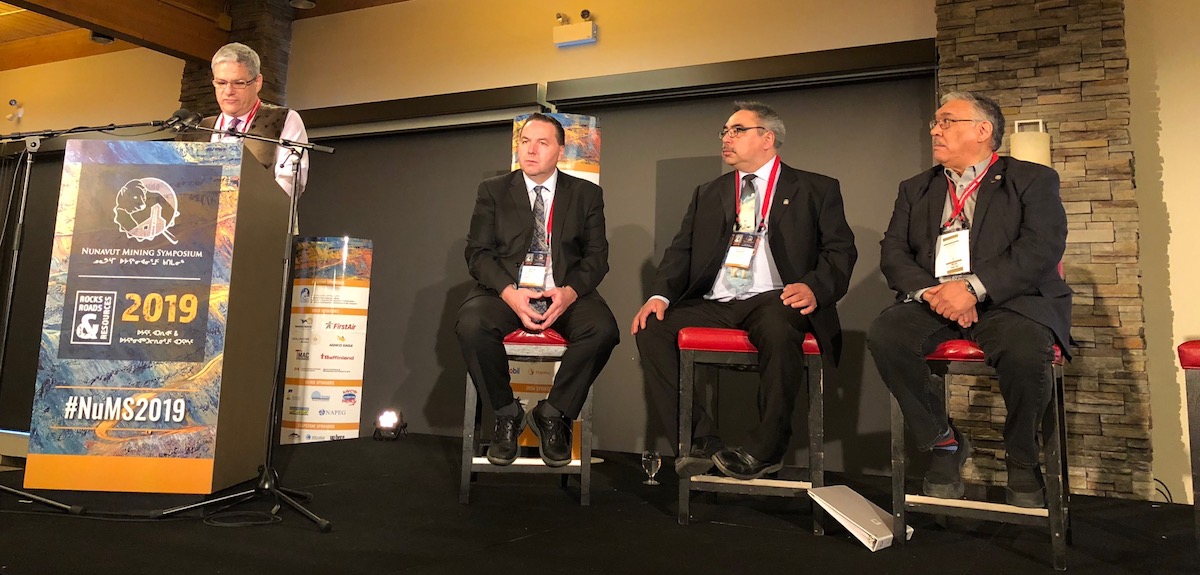Panelists at Nunavut Mining Symposium want a link to Canada’s road system
A road link to Manitoba or Northwest Territories could lessen Nunavut's dependence on air and sea shipping.

At the Nunavut Mining Symposium in Iqaluit, you don’t have to look far to find supporters of a road linking Nunavut to the Northwest Territories or Manitoba, to reduce the North’s dependence on marine transportation and satellite telecommunications.
At a Monday morning panel session called, “Maybe the resources are the road?,” the Northwest Territories’ industry minister, Wally Schumann, Nunavut’s transportation minister, David Akeeagok, and Kitikmeot Inuit Association President Stanley Anablak all made pitches for roads and how the federal government should come up with money to help make that happen.
Anablak, a promoter of the Grays Bay port and road project, which would aim to join the Arctic coast to mines in the western Kitikmeot and eventually the N.W.T., said that proposed project in western Nunavut finally has regained Nunavut government support.
To highlight the need for the Grays Bay port and road, Anablak referred to the failure of the GNWT-owned Marine Transportation Services barge to bring in needed supplies to western Nunavut in October 2018, as an example of the costly uncertainty of marine transportation.
After the panel, Schumann talked about the continuing anger over the barge-load of orders that didn’t make it to Kugluktuk and Cambridge Bay after MTS cancelled the barge.
The GNWT then flew in some of the items that had been stranded in Inuvik, during a limited airlift to the communities.
“It was an unfortunate event,” said Schumann, still attributing the barge cancellation to climate change, which he said clogged the Amundsen Gulf with sea ice.
Schumann said he could not talk about individual cases, the legal action being explored by angry MTS business clients or the personal impact of the barge cancellation, which left one woman with four children without her truck all year.
“The reality of it is that we didn’t get it in there,” he said. “These people are well aware of where they live; they are not living in downtown Toronto, where they have access to infrastructure.”
“They want they live in Canada’s remote Arctic and there are challenges around that, and we’ll continue to serve them the best that we can.”